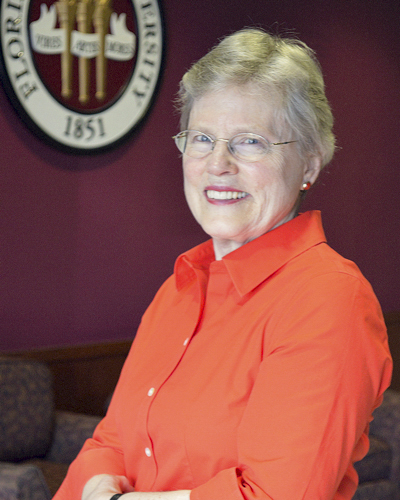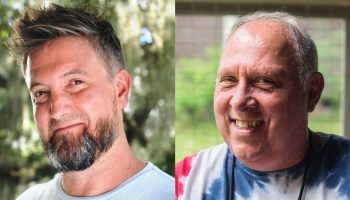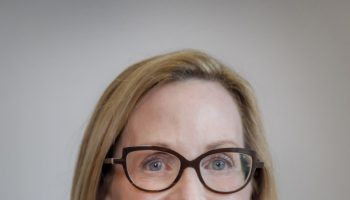DEBORAH TREFTS – STAFF WRITER

Reading is essential for navigating through life — engaging credibly in civics, democracy, the complex marketplace of goods and ideas, and most professions. And at Chautauqua, it’s essential for graduating from the Chautauqua Literary and Scienific Circle and achieving the six levels of reading accomplishment within its Guild of the Seven Seals.
Although reading can be learned later in life, and speed and comprehension can improve, getting reading right in the primary school years prevents more painful progress in high school and beyond.
At 9:15 a.m. Tuesday, July 13 in the tent on the front lawn of the Chautauqua Women’s Club House, Chautauquan and internationally known reading expert Barbara Foorman will talk about “What Parents and Grandparents Can Do at Chautauqua to Foster a Love of Reading (and Reading Success).” Not to worry, aunts and uncles can do it, too.
On Tuesday morning, Foorman will address four issues: encouraging reading success, understanding what’s “normal,” working with struggling and precocious readers, and determining an appropriate amount of screen time.
Foorman is the Emeritus Francis Eppes Professor of Education, Director Emeritus of the Florida Center for Reading Research and former director of the Regional Educational Laboratory Southeast at Florida State University in Tallahassee. A co-founder of the Society for Research on Educational Effectiveness and its journal, she also serves on editorial boards for Reading Research Quarterly and the Journal of Educational Psychology.
“What really got me into reading was as an undergraduate at Stanford (University) studying in Japan and learning to write Japanese, which has four writing systems,” Foorman said. “They have to learn Roman script from the seventh grade up. … I was reflecting on our own system, where many children don’t learn to read early on.”
After majoring in English and graduating from Stanford in 1970, Foorman taught English in rural Japan to secondary students, lawyers and business professionals. After returning to the United States, she studied under Harvard Graduate School of Education psychologist, literacy researcher, writer and professor Jeanne Chall. In 1967, Chall had founded the Harvard Reading Laboratory.
Commissioned by the Carnegie Corporation of New York, Chall had devoted three years to actively investigating how reading should be taught. Her 1967 book, Learning to Read: The Great Debate — which discussed teaching phonics versus whole words — soon became a classic.
Whereas learning coding is the key for aspiring computer programmers, for nascent readers, it is decoding.
According to Diane Ravitch in the spring 2001 edition of American Educator: “Chall found that studies of beginning readers over the decades clearly supported decoding. Early decoding, she found, not only produced better word recognition and spelling, but also made it easier for the child eventually to read with understanding. … The code emphasis method, she wrote, was especially effective for children of lower socioeconomic status, who were not likely to live in homes surrounded with books or with adults who could help them learn to read. For a beginning reader, she found, knowledge of letters and sounds had more influence on reading achievement than the child’s tested mental ability or IQ.”
As a grad student in Chall’s lab, Foorman was in the right place at the right time.
“The ‘great debate’ continues to this day,” she said. “You have to start early and make it fun so it’s an avocation.”
Four years after earning her master of arts in teaching at Harvard in 1972, Foorman completed her doctorate in education at the University of California, Berkeley. As part of her research, she went back to Japan. She and her Japanese colleagues conducted studies of children between the ages of 5 and 7 involving visual and cognitive developmental tasks.
She said that these studies fed into her later work on how kids learn to read, particularly the issue of transparency versus depth between sound and writing.
“There are no decoding problems in Finnish,” Foorman said. “Spanish, Italian and Greek are easier, too. English doesn’t have as much morpho. It has layers of sound to signal relationship.”
For instance, in English the word “yard” is attached to “vine” to form “vineyard,” and “al” is added to the word “sign” to form “signal.”
“A lot of my research is on that form of relationship and reading challenges,” she continued.
In 1977, Foorman headed to Texas, where she spent 18 years in educational psychology at the University of Houston before moving two miles away to the behavioral health wing of the University of Texas Health Science Center at Houston.
At UTHealth, Foorman worked for six years with pediatric patients on research and writing. She said that she was involved in National Institutes of Health-funded research in Houston’s Third Ward. Having evolved from one of the city’s six historic wards, “the Tre” is located immediately southeast of downtown Houston and is the heart of the city’s most diverse community.
Foorman developed literacy assessments for Texas — and later for Florida — as well as curricula in spelling, phonemic awareness and vocabulary.
“I was asked to extend (my work) to the District of Columbia public schools because Congress had taken over running (them).” Foorman said. “Part of that was that there were a lot of kids in high-poverty schools learning to read. My colleague, Dr. Louisa Moats, had created LETRS Training for teachers. It was very popular and used around the country.”
LETRS — Language Essentials for Teachers of Reading and Spelling — provides pre-kindergarten to fifth-grade educators with the research, knowledge and skills they need to significantly improve the literacy and language development of each of their students.
“I spent a year in D.C. working for the research arm of the Department of Education,” Foorman said. “My university loaned me to NCER” — the National Center for Education Research at the Institute of Education Sciences. She served as NCER’s Commissioner in 2005.
Foorman chaired the IES Practice Guide panel on Foundational Reading Skills in Support of Reading for Understanding in Kindergarten through 3rd Grade, and she served on national consensus panels in reading.
Because Florida wanted what Texas had, Foorman said she left Washington, D.C. to run the Florida Center for Reading Research, where she had 500 employees, and to serve as a distinguished professor of education in FSU’s College of Arts and Sciences.
“I created MOUs (Memorandums of Understanding) with several other departments, including the Department of Education and the FCRR, and raised their standards,” she said. “Traditional colleges of education are pretty weak.”
In late 2016, IES awarded FCRR a five-year contract to continue housing the Regional Educational Laboratory (REL) for the southeastern United States, which was initially established in 2012. REL Southeast encompasses Alabama, Florida, Georgia, Mississippi, North Carolina and South Carolina.
“It has created a lot of useful tools,” Foorman said. “Within the teacher guides for supporting family involvement in foundational reading skills (grades K–3) are embedded videos of parents doing research.”
The Georgia Department of Education requested them in 2017-18 — prior to COVID-19 — as part of their federal “Striving Readers” comprehensive literacy planning grant.
“We have 4,500 (reference) citations,” she said. “We have so much compelling evidence, but it gets ignored by so many people — professors, vendors who sell educational materials, legislators. It’s part of a general anti-science trend in this country. … It really does affect the educational materials available. There are no reading materials except trade books. Teachers are training teachers. … But I’ve spent 40 years navigating these challenges and there are enough bright points along the way that it keeps me going.”




